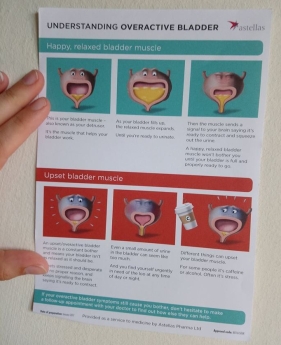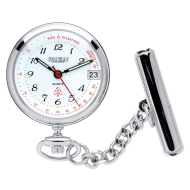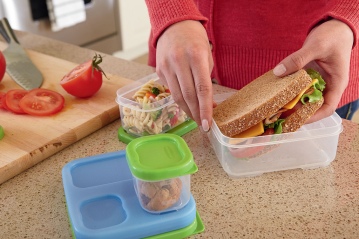Seeing as it’s coming up to the summer block placement and no matter if you’re in placement in the community doing a 9-5, 5 days a week or if you’re on a ward still doing 37.5 hours in a variety of shifts, it’s a lot!
So I thought I’d give some little tips about how to keep yourself busy no matter what year you’re in and push yourself to get involved as much as possible! I know that, as I’m a second year doing my elective placement back home, it can a little nerve wracking starting over in a new trust and spending so much time with a team I’ve never met before. But if there’s anything you take away from this ramble then: FAKE IT UNTIL YOU MAKE IT. No one can tell if you’re faking confidence but are freaking out on the inside and you’ll gain the muscle memory to remain calm the next time you do something that scared you previously.
Anyway….
I’m going to first off say that being an independent learner is very different from being an independent student nurse, it’s still okay to observe interactions and ask for some assistance when needed absolutely nothing wrong with that. But i’m talking about sometimes taking the initiative when it comes to what you get out of placement.
Trust me when I say that I know first hand how terrifying the idea of talking to some staff can be sometimes, with a history of social anxiety I’m still not quite over the fear of initiating a conversation with people that I don’t know that well. However one good thing about this career choice is that you basically know that most people (hopefully) are going to be super nice and friendly, always happy to help.
This goes for both ward and community placements, sometimes there will be days when there is endless tasks to do and others it feels like there isn’t anything to do. It’s okay to sometimes take a breather from it all but you don’t want to be seen as the student whose in the office all the time because you’re just too nervous to ask to sit in a ward round or go on a home visit when your mentor isn’t in.
So here’s some tips about how to try to minimise those moments:
- Bring a notebook and write all the stuff in it!
I found this particularly easy and well within my comfort zone in both my first and second year placements, I either made notes during the interactions I had or after them. This helped me to remember them more and also helps to get you in the habit of writing things like nursing notes and reflections (portfolio stuff is always a bonus, fill that bad boy up!) You could even simply write down your timetable for the day or lists of tasks to do so you know what’s going on. Also maybe look into bullet journaling because I found this helped to structure my day to day personal and professional life a lot easier. It can be sometimes rare you find a computer to type stuff up on so maybe just wait until you’re home to do this. - Ask for stuff to do in meetings!
Another thing with this job is that there’s always new staff or people on different shifts and if you’re in the habit of just hanging around one person and they all of a sudden aren’t in, you’re kinda at a lost of what to do. Especially because we are supposed to spend a minimum of 40% of our time with our mentor, you need to be around other members of the staff in the other 60%. By asking in the meetings or handovers if there’s anything you can come along to or to shadow it can help you to get exposure to stuff your mentor may not have gone through with you get.
- Spend time with the MDT.
So there’s a lot of people involved in the care of one person or in one team or one ward. Therefore it is important to get to know what their job is because in the future you may become a care coordinator or key nurse and need to know the jobs of all the others involved. Some of the job roles you will end up picking up through experience (I actually have a list of terms that I hadn’t heard before and had to research). Spend time with the social workers, consultants, nursing assistants, occupational therapists, psychologists, junior doctors, anaesthetists and even the managers to help understand the pathways to care in each scenario.
- Research and essays!
Now then you may be on placement at the same time as completing an essay so if you have extra time, notebook (or access to a computer if you want to type it up) and your mentor is okay with it then why not? Another thing you can do is research the conditions you are coming across if you haven’t learnt about them before or the acronyms you don’t understand, you could read stuff and rewrite it or just copy and paste for your own learning (I have about 40 pages of research just from my placement with an early intervention into psychosis team because there’s so much to go over!) There’s also shouldn’t be any issues with bringing in a book you’ve bought or got from the library to read through and make notes in your own time. It’s up to you how you want to spend time on placement and how busy you want to be but expanding your knowledge should never be a bad thing. You’re always learning in this career, while studying and beyond! - Spokes, spokes, spokes!
This is something which you should definitely want to do, there are so many linking organisations and teams in nursing that you can spend time with. If there’s a particular area that you wanna look into like voluntary organisations, or youth groups, or A&E liaison team or community teams or physical health clinics or even wards in the same building then go for it! Any experience is good experience. You could spend a few hours or a whole week if you’re on block placement. By doing this you understand better the available places to possibly refer people to and could find the perfect place that you wanna work in the future.
- Ask questions!
Now then im super bad at this one. I always think of questions to ask AFTER they’ve asked if i have any questions but there’s nothing wrong with a little clarification if you still need to go over something you’ve learnt. Think about questions to do with people’s history or symptoms or why they use different assessments or what the evidence based practice is. It’s always good to ask a question because even the other person might not know and then you can both learn together!
I hope this gives you all some suggestions on how to become a more independent learner and I wish you all the best for your summer placements, don’t forget to get as much out of these experiences as possible but don’t stress if you don’t you have the rest of your career to learn more!
by Jess Manning – second year mental health nurse




 As you soon discover, pens are like precious gold-dust in the NHS. Everyone from nurses to patients will ask to borrow your pens and it’ll be a miracle if you ever see them again. Definitely don’t take your favourite fountain pen or any expensive stationary because it won’t hang around for long. My suggestion is to buy a big stash of cheap pens with the clicky tops that you can keep in your bag, so even if all yours go walkies, you’ll have a back-up. Alternatively, as every student or registered nurse knows, if you ever see free pens on offer
As you soon discover, pens are like precious gold-dust in the NHS. Everyone from nurses to patients will ask to borrow your pens and it’ll be a miracle if you ever see them again. Definitely don’t take your favourite fountain pen or any expensive stationary because it won’t hang around for long. My suggestion is to buy a big stash of cheap pens with the clicky tops that you can keep in your bag, so even if all yours go walkies, you’ll have a back-up. Alternatively, as every student or registered nurse knows, if you ever see free pens on offer 
 A piece of advice from a chronically disorganised person approaching her thirtieth year on this planet:
A piece of advice from a chronically disorganised person approaching her thirtieth year on this planet: 